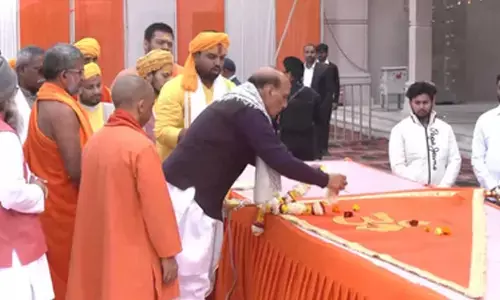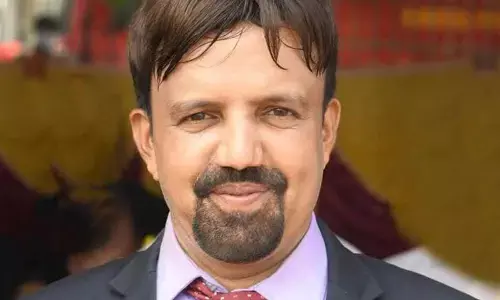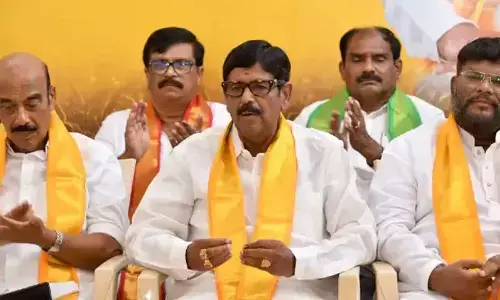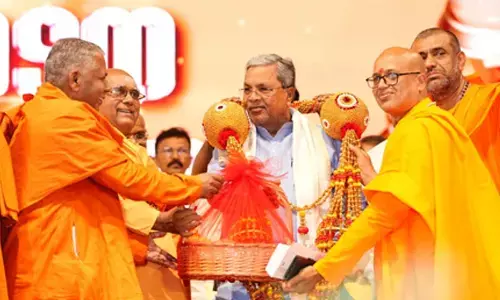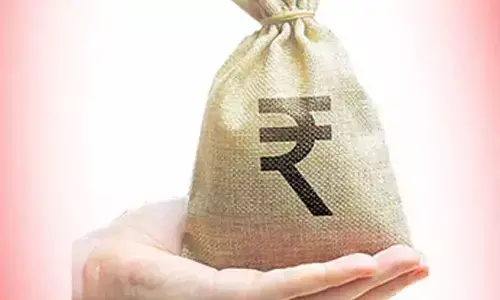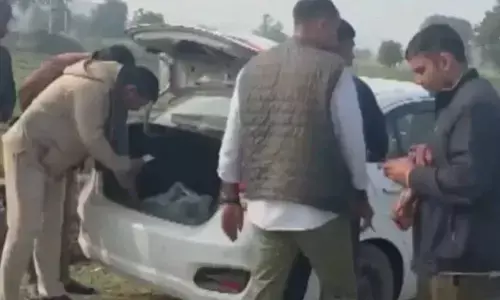Expectations from the Budget
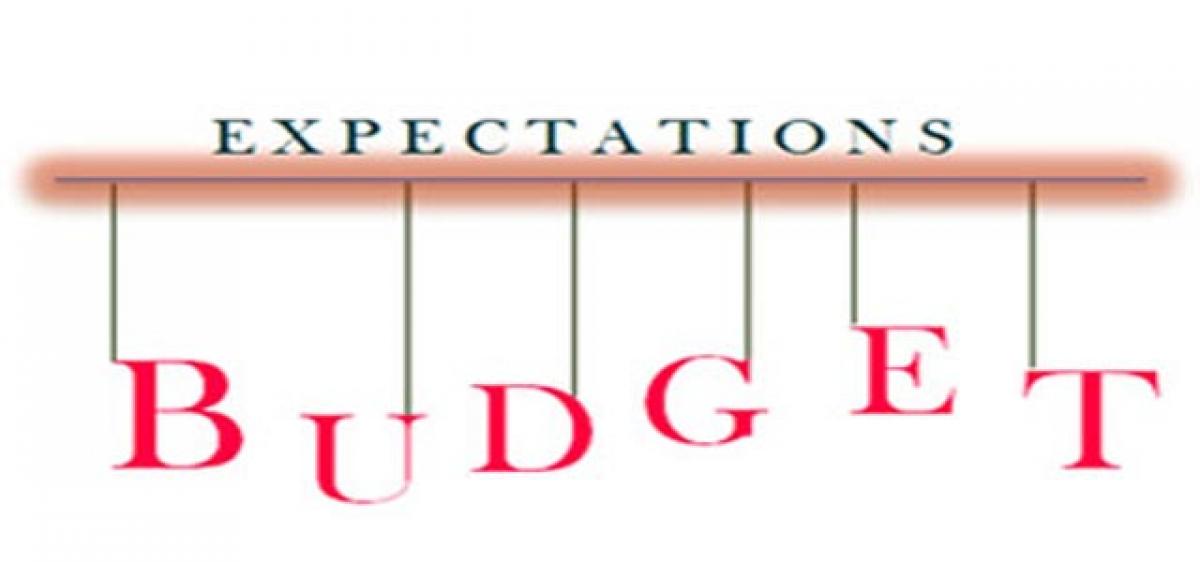
Finance Minister Arun Jaitley deserves kudos for increasing investment in people-oriented infrastructure. Allocations for rural roads, rural electrification and making of productive assets under MNREGA have been increased.
Finance Minister Arun Jaitley deserves kudos for increasing investment in people-oriented infrastructure. Allocations for rural roads, rural electrification and making of productive assets under MNREGA have been increased. At the same time, the Finance Minister provided relief in Income Tax. He has committed and increase in expenditures while, at the same time, reducing the income.
This means more expenditure and less income for the government. This simply cannot be true. Actually the Minister has imposed higher taxes on people through demonetisation. Say, a person was buying goods in cash and evading payment of taxes on the same. He was paying a tax of, say, Rs 500 on his income of Rs 10,000 and consuming goods worth Rs 9,500. Now he will buy all goods in digital payment.
Tax will have to be paid on these goods because these transactions will enter the bank records of the shop keeper. The taxes paid by him will go up to, say, Rs 800 because he will be buying more tax-paid goods. He will have to reduce his consumption to Rs 9,200. This is the secret of the Finance Minister increasing expenditures while providing relief in income tax.
The relief provided is less than the expected increase in collection of tax due to digital payments. Thus the people will have to pay more tax. The Finance Minister proposes to use this increased income for investments in people-oriented infrastructure, which is wholly welcome. Increased investment in drinking water supply and better sewage in the slums will lead to less expense on doctors. Increased investment in rural roads and highways will make it easier for the people to reach their produce to the market.
Such measures will lead to increase in incomes of the people and compensate for the loss of income due to higher taxes. This is the most inspiring part of the Budget. The problem, if any, lies in implementation. The capital expenditures of the Union Government have been on the decline since the NDA II Government has come to power. It is to be seen whether the Minister can reverse this trend on the ground.
We must not forget though that such investment has continually been made since Independence. Yet, the farmers continue to be in distress decade after decade. Every two or three years we have a spate of farmers’ suicides. Migration from rural to urban areas continues unabated because youth do not find agriculture to be a profitable. The Finance Minister is aware of this problem.
He has increased allocation on schemes like subsidised insurance, cheap loans, expansion of drip irrigation and soil health card. This already has, and will further lead to a reduction in the cost of production. This approach, however, has not helped increase the incomes of the farmers in the last 70 years because the price of agricultural produce has declined in tandem. Thus the many-fold increase in agricultural productivity since Independence has not helped the farmers.
The sole solution to their woes is to increase the price of agricultural produce. The Budget has taken no steps in this direction. As a result, agricultural prices will continue to decline and the farmers will continue to suffer. The Finance Minister has actually adopted an exactly opposite policy. Imports of agricultural produce like pulses are being encouraged. This helps keep the prices low for the urban consumers but is killing for the farmers. The government is caught between the devil and the deep blue sea.
Restricting imports helps farmers but hits at urban consumers. Encouraging imports helps urban consumers but hits at farmers. Despite this dilemma, the government must reduce imports because our food security requires more domestic production even if the urban consumer has to suffer.
The Finance Minister has a legitimate case to allow the prices of agricultural produce to fall, to allow the farmers’ incomes to decline, and to allow migration of people from rural to urban area. But then he should not make false claims of doubling of the farmers’ incomes. He should be bold and inform the farmers that they should adjust to lower prices and incomes.
The situation of employment is continually worsening. Wages have been stagnant for the last three years because there is less demand for workers. Machines have taken over the jobs in manufacturing and agriculture. New jobs are being created in servicing of mobile phones etcetera but these are far and few. Simultaneously, the number of youth entering the job market is increasing because of the population boom of the eighties and nineties. These youth will become an asset for the country if they are provided with jobs.
They will become criminals and terrorists otherwise. The present policy of “Make in India” provides encouragement to largescale production with automatic machines. The Finance Minister has provided relief in Income Tax to small industries. While this is welcome, it does not solve their basic problem of competition from large industries and imports. It was more important to provide relief to small industries in excise duty so that they could stand up to the competition. Small industrialists are willing to pay income tax should they have income in the first place.
The Finance Minister should have considered reverting to the policy of reserving certain labour intensive sectors exclusively for small scale industries that create most jobs in the economy. A steep exemption in excise duty must be provided to self-employed persons to encourage youth to create their own businesses. The intentions are good, but the Finance Minister has failed to address the basic problems of small industries hence they will continue to languish despite higher income tax exemption.
The engine of our economy is now the services sector which accounts for nearly 55 percent of the GDP. The Finance Minister has not increased the service tax payable by these businesses but he has indicated that this will be increased when the Goods and Services Tax is implemented later in the year. This will be like imposing high taxes on the hen that lays the golden egg.
The way forward is to separate the services sector into “consumption-oriented” and “income-oriented” sub-sectors. Eating in a restaurant is a consumption-oriented service while health-tourism is an income-oriented service. The Finance Minister should ensure that income-oriented services are placed in lower tax slab in the GST dispensation. Author was formerly Professor of Economics at IIM Bengaluru
By Dr Bharat Jhunjhunwala









